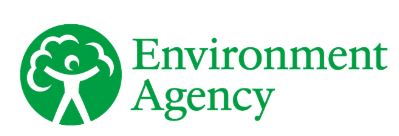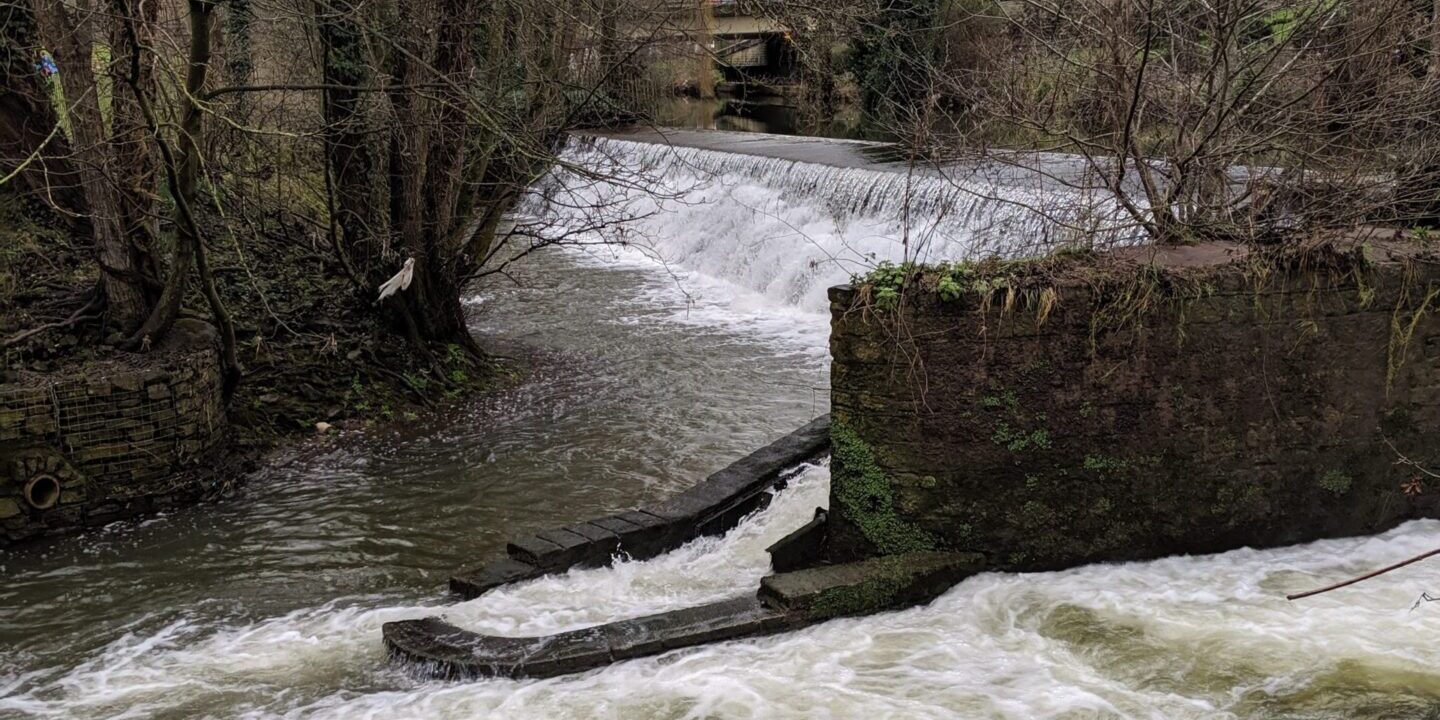BART are exploring options with partners to improve the condition of the River Chew through Keynsham Memorial Park for the benefit to people and wildlife.
BART is leading the River Chew Catchment Partnership Project that aims to improve the River Chew for the benefit of people and wildlife by developing a strategic platform which draws in investment to deliver a mosaic of projects catchment wide.
This particular project aims to improve passage to all fish species at the most downstream barrier on the River Chew, enhance river habitat throughout an important amenity space and deliver multiple benefits to the local community by creating a safer and healthier environment. The project may also deliver flood-risk benefits. The initial stages of this project as detailed below, was delivered in partnership with the Environment Agency who provided project funding.
Keynsham Memorial Park weir is situated approximately 500 metres upstream of the confluence of the Bristol Avon; the structure is a remnant of Keynsham’s industrial past; a large structure spanning the width of the channel of the River Chew. Historically, the primary function of the weir was to provide an elevated head of water to feed a mill channel. The mill is no longer present and has been replaced by a band stand. In its current form, the weir forms a significant barrier to fish passage for migratory fish such as Atlantic salmon, trout and sea lamprey, European eel and resident coarse fish species. There is an existing fish pass, but its success rate is unknown. Our specialist advisers suggest that it’s unlikely the pass will provide passage to all species of fish.
Upstream of the weir, the river is impounded for approximately 450 metres through the park. The weir creates a slow-flowing, straight and canal-like waterbody, devoid of diverse features such as pool-riffle habitat characteristic of the River Chew further upstream and downstream of the weir (where conditions are not impounded by artificial structures). As a result, the river bed has become smothered in silt, which has clogged river bed substrate and reduced habitat diversity. Salmonid habitat has become degraded and stone-loving invertebrates such as mayflies and stoneflies have lost river bed habitat.
During early 2020, BART commissioned a package of flood-risk modelling to investigate options for the weir. The modelling was delivered for a variety of flow scenarios to demonstrate how different options including complete weir removal and management of the existing sluice gate would affect flood-risk. Outputs of the study are currently under review.
In conjunction with flood-risk modelling, BART carried out a social perception survey in Keynsham Memorial Park to better understand the views of people local to the park and its weir and to gauge support or opposition to a project addressing the weir and its impacts. Through a digital questionnaire and conversations with local people walking through the park, we were able to capture people’s views and opinions of the park, including the river and the weir.
Many of the respondents choose to walk in the park because of the open green space and the river running through it. Respondents expressed a number of concerns with regard to the current conditions, particularly during the autumn and winter months. These concerns were linked to health and safety around the deep silt within the river and the regular flooding onto the footpaths.
Once BART explained the issues associated with man-made barriers and the potential benefits of addressing these issues, 9 in 10 respondents said they would slightly or very favourably support a project addressing the impact of the weir. Many respondents were particularly keen to see more wildlife in the park as well as improvements to water quality and associated health and safety risks.
BART will share the results from the social perception survey with project partners to help build support for the project and to demonstrate the multiple benefits to the local community as a space for all to enjoy. BART plan to commission a more detailed feasibility study of the weir and river through the park subject to securing support and funding from project partners.
To find out more about the project and our wider work across the River Chew catchment please get in touch with Project Manager, Simon Hunter at simon@bristolavonriverstrust.org.








